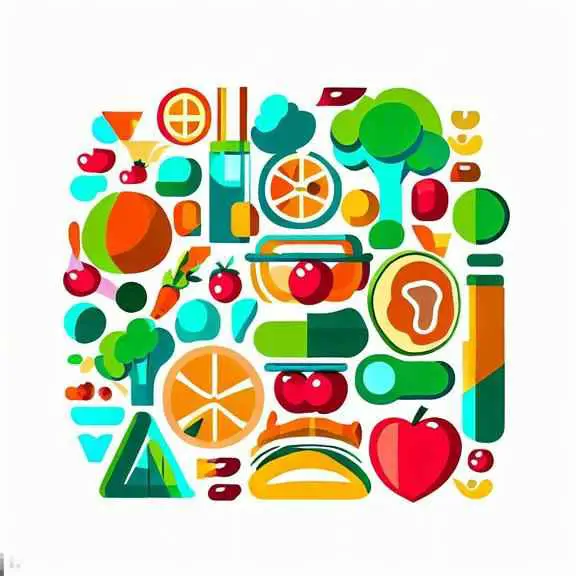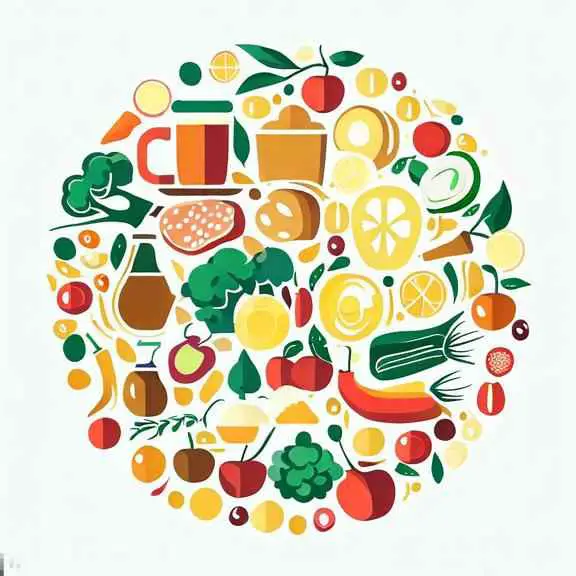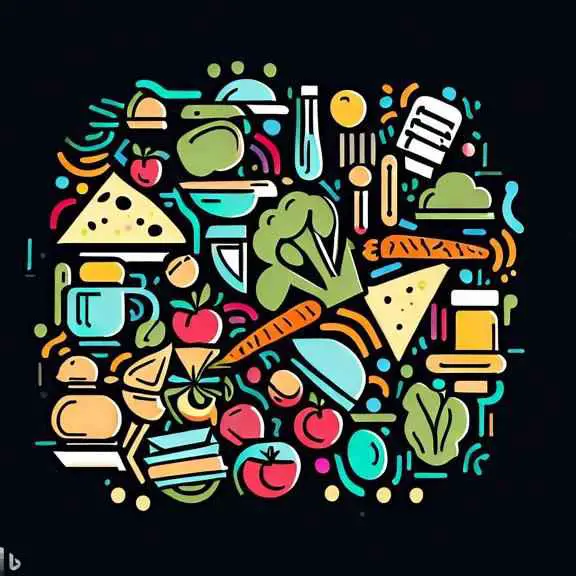Paragraph on
Healthy Food
for all Class, Words
by Food on
Eating healthy food is important for maintaining good health. Healthy food contains essential nutrients, vitamins, and minerals that our…, please continue reading.

Table of Content
Ad
The Paragraph on Healthy Food
Ad
Eating healthy food is important for maintaining good health. Healthy food contains essential nutrients, vitamins, and minerals that our body needs to function properly. A healthy diet includes a variety of foods such as fruits, vegetables, lean proteins, and whole grains. These foods nourish our body and provide us with the energy we need to perform daily activities.
Fruits and vegetables are a great source of vitamins, fiber, and antioxidants. They help to keep our body healthy by fighting off diseases and improving our immune system. It is recommended to eat at least five servings of fruits and vegetables each day.
Lean proteins such as chicken, fish, and tofu provide our body with essential amino acids that are necessary for building and repairing muscles. Additionally, whole grains such as brown rice and quinoa are great sources of complex carbohydrates, which provide our body with sustained energy throughout the day.
Processed and junk food, on the other hand, are high in saturated and trans fats, added sugars, and sodium. These foods, when consumed in excess, can lead to obesity, diabetes, and other health problems.
Eating healthy food not only benefits our physical health but also our mental health. Studies have shown that eating a balanced and nutritious diet can help improve our mood and reduce the risk of depression and anxiety.
In conclusion, it is essential to prioritize eating healthy food for a healthy body and mind. Incorporating a variety of fruits, vegetables, lean proteins, and whole grains into our diet can significantly improve our overall health and well-being.

Questions about Healthy Food
Ad
Questions:
- What are the benefits of eating healthy food?
- What foods are considered healthy?
- What do fruits and vegetables provide our body with?
- How many servings of fruits and vegetables should we aim to eat each day?
- What are lean proteins and why are they important?
- What foods are considered to be processed and junk food?
- What health problems can arise from consuming processed and junk food?
- How does eating healthy food benefit our mental health?
- Why should we prioritize eating healthy food?
- What are some examples of complex carbohydrates that we can include in our diet?
Answers:
- Eating healthy food benefits our physical and mental health.
- Fruits, vegetables, lean proteins, and whole grains are considered healthy foods.
- Fruits and vegetables provide our body with vitamins, fiber, and antioxidants.
- It is recommended to eat at least five servings of fruits and vegetables each day.
- Lean proteins such as chicken, fish, and tofu provide our body with essential amino acids that are necessary for building and repairing muscles.
- Processed and junk food are high in saturated and trans fats, added sugars, and sodium.
- Consuming processed and junk food in excess can lead to obesity, diabetes, and other health problems.
- Eating a balanced and nutritious diet can improve our mood and reduce the risk of depression and anxiety.
- Prioritizing eating healthy food is essential for maintaining good health and well-being.
- Brown rice and quinoa are examples of complex carbohydrates that we can include in our diet.

Vocabulary related to Healthy Food
Ad
Vocabulary Words:
- Nutrients: Substances that provide nourishment for the body.
Usage: Fruits and vegetables are a great source of nutrients. Synonyms: nourishment, sustenance, sustentation Antonyms: waste, consumption
- Vitamins: Essential substances that are necessary for the proper functioning of the body.
Usage: Fruits and vegetables provide our body with essential vitamins. Synonyms: micronutrients, supplements Antonyms: deficiency, insufficiency
- Minerals: Inorganic substances that are necessary for the proper functioning of the body.
Usage: Our body requires a small amount of minerals. Synonyms: elements, compounds Antonyms: organic, biological
- Fiber: An important nutrient that helps regulate the digestive system.
Usage: Fruits and vegetables are a great source of fiber. Synonyms: roughage, bran Antonyms: processed, refined
- Antioxidants: Substances that protect the body from harmful free radicals.
Usage: Fruits and vegetables contain antioxidants that help fight off diseases. Synonyms: radical scavengers, free radical inhibitors Antonyms: oxidants, pro-oxidants
- Lean proteins: Proteins that are low in fat.
Usage: Chicken and fish are examples of lean proteins. Synonyms: low-fat proteins Antonyms: fatty proteins
- Whole grains: Grains that contain the entire grain kernel, including the bran, germ, and endosperm.
Usage: Whole grains such as brown rice and quinoa provide sustained energy throughout the day. Synonyms: unprocessed grains Antonyms: refined grains, processed grains
- Saturated fats: Fats that are solid at room temperature.
Usage: Processed and junk food are high in saturated fats. Synonyms: solid fats Antonyms: unsaturated fats
- Trans fats: Fats that are created through the process of hydrogenation.
Usage: Trans fats can be found in processed and fried foods. Synonyms: hydrogenated fats Antonyms: natural fats
- Sodium: A mineral that is essential for the proper functioning of the body.
Usage: Processed food is high in sodium. Synonyms: salt, table salt Antonyms: low-sodium

Structure of the sample "Healthy Food" paragraph
Ad
Cohesion and coherence are used in the paragraph through the use of transitional words and phrases such as “in conclusion” and “on the other hand.” These words help to connect ideas and ensure that the paragraph flows logically. Additionally, the paragraph is organized in a clear and structured manner, with each sentence building upon the previous one to support the main idea.
